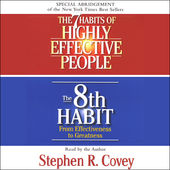Running a business is a lot like navigating a ship. We move forward into the deep unknown, conquering small currents, big currents and all kinds of obstacles. And more often than not, we do this without a lot of guidance. We simply keep moving forward, learning as we go, in the hope that somehow we will arrive at our destination.
The big question is, however…
Do we actually know what our destination is? Do we have a clear idea of where we are heading? And do we know when we have arrived?
When running a business, day in and day out, it’s easy to get caught up in the operation, without ever really thinking about where we want to end up. Maybe you never had a clear idea of what your destination is, taking it one day at a time. Maybe you did have a clear direction at the start but simply lost track. Or maybe your dreams and goals have changed completely and it’s time to redefine them.
When I first started out in business, I always heard business coaches and successful entrepreneurs talk about the importance of having a clear vision. It all sounded great, but nobody told me how to actually create one. It has always been this abstract thing that every business owner needs, but nobody knew how to go about it.
It wasn’t until one of my business mentors taught me how to create a clear vision for my business that I truly understood how powerful it really is.
A clear vision is a compass in your business. It’s the guiding force that keeps you on track when you are sailing through rough waters, you’ve lost your way, or when you feel pulled in different directions. So, how do you get clear on what you want in your life and business and turn it into a compelling vision?
How to write a business vision
Here are 3 steps to creating a vision for your business that will help you gain more clarity, increase your motivation and ultimately live a happier life.
1. Define Your Values
You can’t write a great vision without first getting clear on your core values. What are core values? They are the things that you care about deeply and that are absolutely uncompromisable.
Take some time to think about everything that matters to you. Write everything down. Don’t leave anything out. You might want to ask yourself these questions.
- What really matters to me?
- Why am I in business?
- What do I stand for?
Write down all the answers you can come up with. Try to aim for at least 30 answers or more. When you really can’t think of anything else, it’s time to group what you have written into 3-6 words that will represent and encapsulate all your answers.
Here’s an example of how you can group your values
You might have gone into business because you are looking for financial freedom. But also because you wanted to travel more or spend more time with your family. In order to do that, your business needs to be able to run without you. You’ll need to be able to physically remove yourself from the business. Because ultimately, all three things mean “Freedom”, you could make that one of your core values.
Once you grouped everything that’s important to you into 3-6 words, order them by significance and write a short paragraph for each of your core values outlining what it encompasses and means to you.
You now have a set of core values that you can refer to every time you need to make a decision in your life or business to make sure it aligns with what truly matters to you. I suggest you print out your values and put them somewhere visible, so you can refer to them frequently.
2. Start Dreaming Big
Step one was about your needs. Needs that need to be fulfilled in order for you to be happy and live a balanced, purposeful life. Step two is about your wants. Make a list of everything you can think of that you want to have, do or experience in your lifetime. Do you want to skydive (I highly recommend it)? Are there any particular places you want to see? Any special people you want to meet? Any particular achievements you want to make happen?
It’s important that you don’t limit yourself when doing this exercise and simply allow your creativity to flow. Get creative. Don’t overthink. Don’t get caught up in your beliefs of why you can’t have or do a certain thing. If you dream about it, put it on paper!
Here are two questions that might help you.
- What would I do if I knew I could not fail?
- What would I do/have if I had all the time and money in the world?
3. Write Your Vision
Now that you are clear on your core values and allowed yourself to dream for a while, it’s finally time to craft a compelling vision for your future. A story that you can read to yourself from time to time (or daily) to remember what you are doing it all for.
Keep in mind that this is your personal vision for your life, so make sure it speaks to you. As you learn and grow, your goals and vision might change, too. That’s perfectly fine. Take some time each year to review and rewrite your vision, add anything of importance to you and take out those things that don’t really matter anymore. You can simply start like this:
“It’s 3 years from now and…”
Then describe in detail what you want your life to look like. Use present tense and write as if these things have already happened. Describe how it makes you feel. Feel into the moment as if you are already living this life. The clearer the picture you paint, the more powerful it will be when you read over it again in a few months.
Have you ever tried to identify your core values or written a vision for your business before? What’s your experience? How has it helped you? Do you find the above exercises helpful? Leave me a comment below! I’d love to hear your thoughts.









